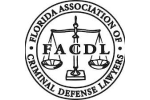to Save Yours
Field Sobriety Tests
You’ve probably familiarized yourself, at least to some level, with the tests officers use to determine whether or not you’re impaired after being pulled over and suspected of drunk driving. Whereas you know “of them,” we know how they’re performed, how they should be explained, how to reduce the credibility of each test, and how these tests are deficient. Jason Mayberry made it his goal as a prosecuting attorney to master the ins and outs of field sobriety tests so that he would be prepared for any attempt made by a defense attorney to debunk them. In his preparation he also learned just exactly how to hit the State where it hurts when defending those accused of this crime. The weaknesses of field sobriety tests are the strengths of the arguments our Tampa DUI attorneys will make on your behalf. Just as taking out a weight bearing wall in a building compromises its structural integrity, reasonable doubt is developed by taking small chunks out of the foundation on which the State Attorney builds its case. Jason Mayberry has done this on numerous occasions as it relates to field sobriety exercises and as history dictates, it has been a recipe for success.
When a Tampa police officer or sheriff’s deputy pulls an individual over and suspects they are driving under the influence, the officer will ask that person to perform a series of field sobriety tests. The most common tests administered in Florida are the Horizontal Gaze Nystagmus test, walk and turn test, and one leg stand test. These three tests are considered to be the “standardized” field sobriety tests according to the National Highway Traffic Safety Administration (“NHTSA”).
Depending on the individual’s age, weight, or physical restrictions, the officer may also ask them to conduct an alphabet test or finger to nose test. These tests are not considered to be standardized and are conducted with less frequency than the standardized tests. Regardless, any test requested must be explained and administered by the officer correctly in order to bear reliability.
What does this mean? “Standardized” tests by NHTSA dictate, must be conducted the exact same way every time. By definition, since two of the tests routinely performed by police officers are not “standardized,” there is a likelihood that they are administered in a manner the officer feels is most efficient. As we all know, efficiency does not equal accuracy. Through experience we have found that officers often do not conduct “standardized” field sobriety tests in accord with the requirements set forth by NHTSA. Just as a scientist’s findings bear no reliability if the testing was not controlled, neither do the results of field sobriety tests that are conducted contrary to their guidelines.
Florida case law has held that Field Sobriety Tests are admissible in trial as lay observations. State v. Meador, 674 So.2d 826 (Fla. 4th DCA) and Williams v. State, 710 So.2d 24 (Fla. 3d DCA). What may be unclear is what is required to establish a foundation for admission of Horizontal Gaze Nystagmus. The Prosecutor must show that the officer has performed Horizontal Gaze Nystagmus enough times to show that the test was correctly administered by a drug recognition expert (“DRE”). Since Horizontal Gaze Nystagmus is at least “quasi-scientific” there must be some predicate laid in order for the test to come into evidence. Williams permits admission of Horizontal Gaze Nystagmus if the test was conducted by a DRE though it is unclear what qualifications are necessary for admission. It can be inferred that an officer must have had HGN training through a NHTSA course and have performed Horizontal Gaze Nystagmus between 100 and 1000 times. See Peters v. State, 7 Fla. L. Weekly Supp. 507 and Bowen v. State, 745 So.2d 1108 (Fla. 3d DCA 1999).
At the Mayberry Law Firm we have prosecuted and defended thousands of DUI cases. We know how field sobriety tests are to be conducted and where officers often err. Our DUI lawyers know what is required in order for Field Sobriety Tests to be admissible against our clients and we hold the State to its burden. Field sobriety tests are always strong points of cross examination in trial and can go a long way in reducing the credibility of the officer’s roadside investigation of an individual’s case.
Make sure the lawyer you hire to represent you on your charge understands what is and is not admissible in your case and if the evidence is admitted, how to reduce its impact against you. Our lawyers are familiar with NHTSA standards, the admissibility of field sobriety tests, and how to reduce any potential effect they have on you in a trial setting. Contact the Mayberry Law Firm at 813-444-7435 or email us online today for a free case evaluation.














